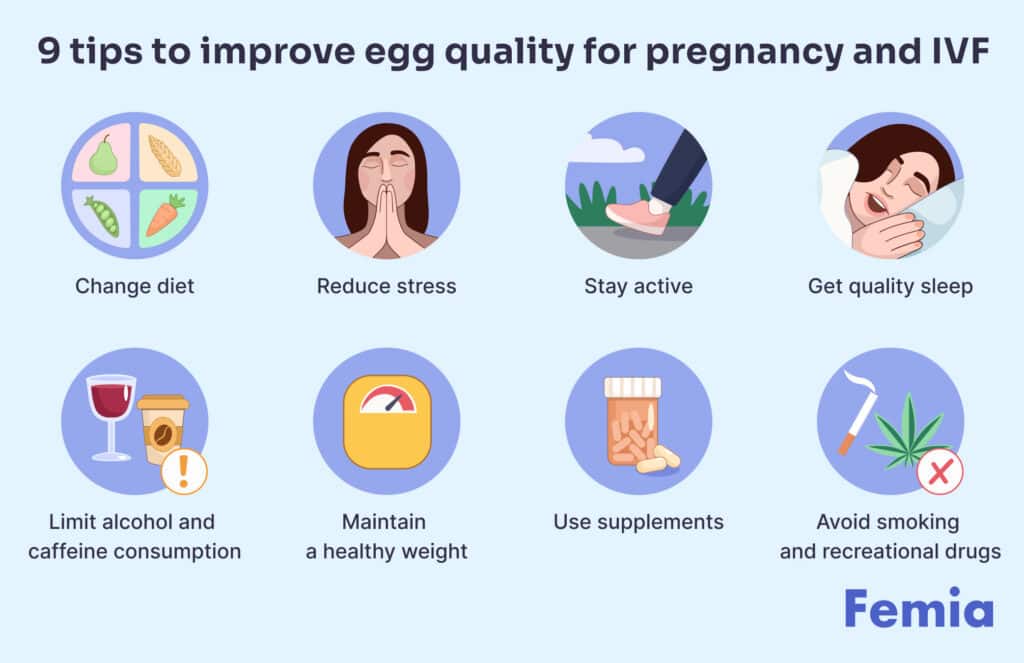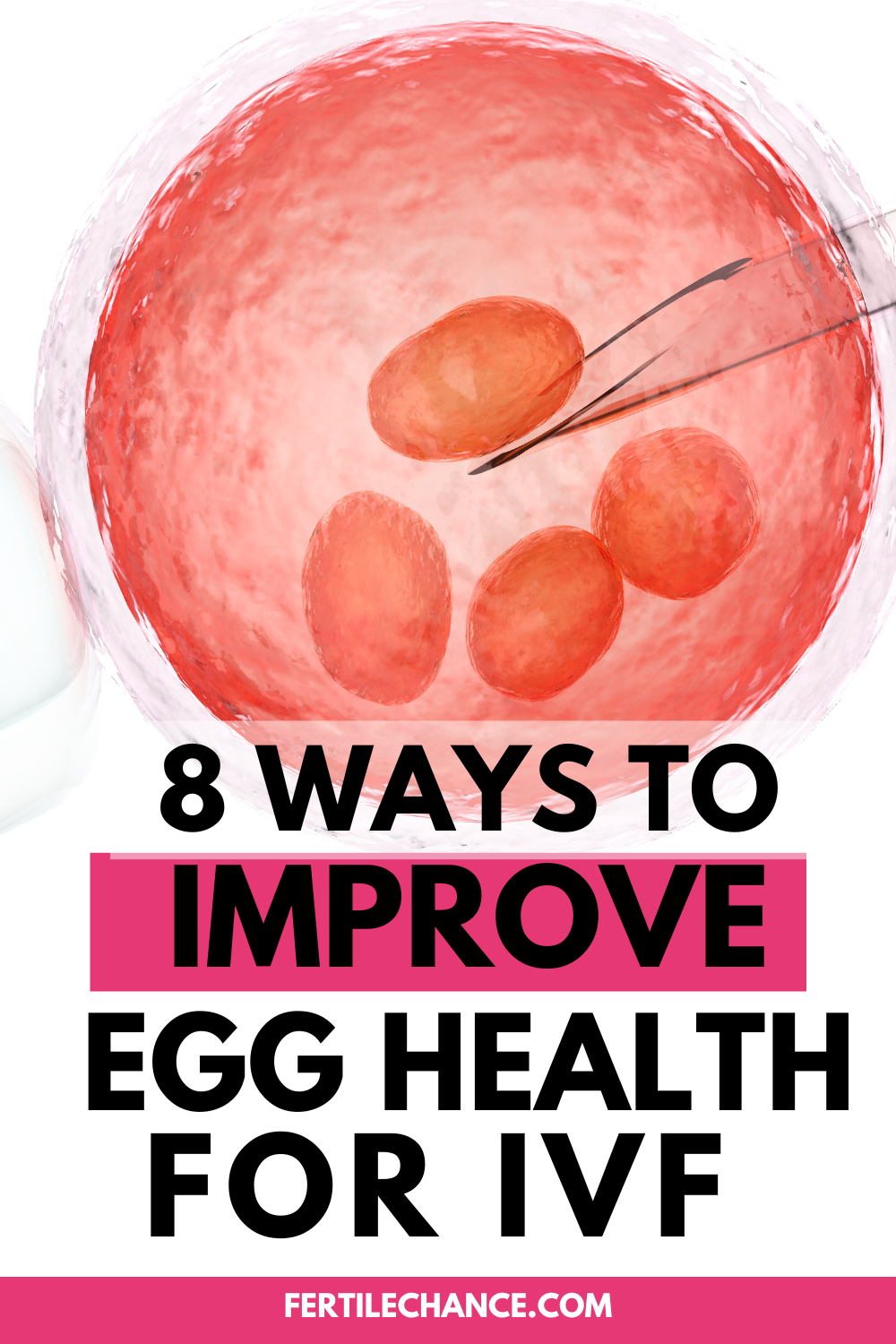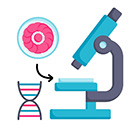How to Improve Egg Quality for IVF: Your Ultimate Guide to Boosting Fertility Success
When you’re preparing for in vitro fertilization (IVF), every little detail feels like it matters—and it does! One of the biggest factors in your IVF journey is egg quality. Healthy, high-quality eggs increase your chances of successful fertilization, strong embryo development, and, ultimately, a healthy pregnancy. If you’re wondering how to give your eggs the best shot, you’re in the right place. This guide dives deep into practical steps, cutting-edge science, and fresh ideas to help you improve egg quality naturally and effectively.
Egg quality isn’t just a buzzword—it’s the foundation of IVF success. While age plays a big role (we’ll get into that), there’s so much you can do to support your body and optimize your eggs. From diet tweaks to stress-busting habits, this article covers it all, including some lesser-known tips you won’t find everywhere else. Let’s get started on this journey together!
Why Egg Quality Matters for IVF
Egg quality refers to how healthy and genetically normal your eggs are. In IVF, doctors retrieve your eggs, fertilize them with sperm, and transfer the resulting embryos into your uterus. If the eggs aren’t in top shape, they might not fertilize properly, or the embryos might not develop well enough to implant. Poor egg quality can also lead to higher miscarriage rates.
Think of your eggs like seeds in a garden. Even with the best soil (your uterus) and water (sperm), a weak seed struggles to grow into a strong plant. The good news? You can nurture those “seeds” with the right care. Studies show that high-quality eggs lead to an 81% pregnancy success rate in IVF, compared to just 66% with lower-quality eggs. That’s a big difference!
Age is the elephant in the room here. As you get older, egg quality naturally declines—starting in your 30s and speeding up after 35. By 40, most eggs have some genetic glitches. But don’t lose hope! While you can’t turn back time, you can still make a real impact with lifestyle changes, supplements, and even some exciting new techniques.

The Science Behind Egg Quality: What’s Happening Inside?
Your eggs have been with you since before you were born, tucked away in your ovaries. Over time, they face wear and tear from things like stress, toxins, and even fevers. This can mess with their DNA, making them less likely to work well in IVF. Scientists call this “chromosomal abnormalities,” and it’s why older eggs often struggle.
Here’s the cool part: eggs take about 90 days to mature before ovulation or retrieval. That’s your window to make a difference! During this time, your body fuels them with nutrients, energy, and protection. Mitochondria—tiny powerhouses inside your eggs—play a huge role too. They provide the energy for fertilization and early embryo growth. If they’re sluggish, your eggs suffer. So, boosting mitochondrial health is a key strategy we’ll explore.
Diet: Fueling Your Eggs the Smart Way
What you eat can transform your egg quality. A nutrient-packed diet protects your eggs from damage and gives them the building blocks they need to thrive. Here’s how to eat your way to better eggs:
Load Up on Antioxidants
Free radicals (unstable molecules) can harm your eggs, but antioxidants fight them off. Think of antioxidants as tiny shields for your eggs. Research from the Journal of Assisted Reproduction and Genetics shows that women with higher antioxidant levels have better IVF outcomes.
- ✔️ Eat these: Berries (blueberries, strawberries), spinach, kale, dark chocolate (yes, really!), and nuts like almonds.
- ❌ Skip these: Processed foods, sugary snacks, and trans fats—they create more free radicals.
Embrace Healthy Fats
Omega-3 fatty acids reduce inflammation and strengthen egg cell membranes. A study in Fertility and Sterility found that women who ate more omega-3s had higher-quality embryos.
- ✔️ Try: Salmon, chia seeds, flaxseeds, walnuts.
- ❌ Avoid: Fried foods and fatty red meats—they can throw off your hormone balance.
Power Up with Protein
Lean proteins support hormone production, which keeps your ovaries happy. Go for variety to cover all your bases.
- ✔️ Options: Chicken, turkey, eggs (ironic, right?), tofu, lentils.
- ❌ Limit: High-fat meats like bacon or sausage.
A Sample Day on Your Plate
- Breakfast: Greek yogurt with berries and a sprinkle of chia seeds.
- Lunch: Grilled salmon with quinoa and steamed broccoli.
- Snack: A handful of almonds and an orange.
- Dinner: Turkey stir-fry with colorful veggies over brown rice.
Small changes add up! Over 90 days, this kind of eating can seriously boost your egg health.

Supplements: Extra Support for Your Eggs
Sometimes food alone isn’t enough, especially if you’re prepping for IVF. Supplements can fill the gaps and target egg quality directly. Always check with your doctor before starting, though—safety first!
Coenzyme Q10 (CoQ10)
CoQ10 is a rockstar for mitochondrial health. As you age, your CoQ10 levels drop, leaving your eggs low on energy. A 2018 study found that women taking 600 mg of CoQ10 daily for 60 days had more high-quality embryos in IVF.
- How to use: 200-600 mg daily, split into doses with meals.
- Fun fact: It’s also great for your skin—bonus!
Vitamin D
Low vitamin D is linked to poor IVF success. It helps regulate hormones and protects egg DNA. About 40% of women are deficient, so it’s worth getting tested.
- How to use: 2,000-4,000 IU daily if you’re low (ask your doc for a blood test).
- Tip: Pair it with a fatty meal for better absorption.
Omega-3s
If fish isn’t your thing, omega-3 supplements are a solid backup. They reduce inflammation and support egg development.
- How to use: 1,000-2,000 mg of EPA/DHA daily.
Quick Quiz: Are You Getting Enough?
Answer these to see if supplements might help:
- Do you eat fatty fish (like salmon) twice a week? (Yes/No)
- Do you get 15 minutes of sunlight most days? (Yes/No)
- Do you feel energized or sluggish most days? (Yes/No)
If you answered “No” to any, talk to your doctor about adding these supplements!
Lifestyle Tweaks: Small Habits, Big Impact
Your daily habits shape your egg quality more than you might think. Let’s break it down:
Move Your Body (But Don’t Overdo It)
Exercise boosts blood flow to your ovaries, delivering oxygen and nutrients to your eggs. A study in Obstetrics & Gynecology showed that moderate exercise (like brisk walking) improved IVF success rates.
- ✔️ Do: 30 minutes of walking, yoga, or swimming 5 days a week.
- ❌ Don’t: Run marathons or do intense HIIT daily—it can stress your body and hurt egg quality.
Sleep Like a Champ
Your eggs recharge while you sleep. Poor sleep messes with hormones like melatonin, which protects eggs from oxidative stress. Aim for 7-9 hours a night.
- Tip: Dim lights an hour before bed and skip screens—blue light tricks your brain into staying awake.
Ditch the Toxins
Smoking, alcohol, and even too much caffeine can damage your eggs. Research shows smokers lose eggs faster, and heavy drinking lowers IVF success.
- ✔️ Do: Quit smoking (ask your doc for help) and limit coffee to 1-2 cups daily.
- ❌ Don’t: Binge drink or vape—those chemicals sneak into your ovaries.
Stress: The Silent Egg Killer
Stress isn’t just in your head—it hits your eggs too. High cortisol (the stress hormone) can disrupt ovulation and egg maturation. A 2021 study linked chronic stress to lower embryo quality in IVF patients.
How to Chill Out
- Breathe deep: Try 5 minutes of slow, deep breathing daily. Inhale for 4, hold for 4, exhale for 4.
- Get outside: Nature lowers stress fast—take a 20-minute walk in a park.
- Laugh it up: Watch a funny show (Kapil Sharma’s birthday buzz on X proves laughter’s universal appeal!).
Mini Stress Test
Rate these from 1 (never) to 5 (always):
- I feel tense or overwhelmed daily.
- I struggle to relax at night.
- I snap at little things.
If you’re scoring 3 or higher, stress might be sneaking into your egg quality. Time to unwind!
Beyond the Basics: Cutting-Edge Ways to Boost Egg Quality
Most articles stop at diet and exercise, but let’s go deeper. Here are three game-changers that don’t get enough attention:
Acupuncture: Ancient Wisdom Meets Modern Fertility
Acupuncture increases blood flow to your ovaries, balancing hormones and reducing stress. A 2022 study in Reproductive Biology and Endocrinology found that women who did acupuncture before IVF had more mature eggs retrieved.
- How to try it: Start 3 months before IVF, 1-2 sessions weekly.
- Why it’s unique: It’s a natural boost that pairs perfectly with medical treatments.
Platelet-Rich Plasma (PRP): The Ovarian Reboot
PRP uses your own blood to stimulate ovarian tissue. It’s experimental, but early research (like a 2023 trial in Human Reproduction) shows it might improve egg yield in women with low ovarian reserve.
- What it is: Doctors spin your blood to concentrate growth factors, then inject it into your ovaries.
- Who it’s for: Women over 35 or with poor response to IVF meds.
- Caveat: It’s not widely available yet—ask a specialist if it’s an option.
In Vitro Maturation (IVM): A gentler Approach
IVM matures eggs outside your body with less hormone stimulation. It’s great if you’re sensitive to IVF drugs. A 2024 study showed IVM eggs had similar quality to traditional IVF eggs, with fewer side effects.
- Why it’s cool: Less poking, more comfort—and it’s gaining traction fast.

Age and Egg Quality: Facing the Facts
Let’s talk straight: age is the biggest hurdle. By 35, about half your eggs might have DNA issues. By 40, it’s closer to 90%. But here’s the twist—your “biological age” (how your body’s holding up) matters too. A healthy 38-year-old might outshine a stressed-out 30-year-old in egg quality.
What You Can Do at Any Age
- Under 35: Focus on prevention—build habits now to protect your eggs.
- 35-40: Double down on antioxidants and mitochondrial support (CoQ10 is your friend).
- Over 40: Consider donor eggs if needed, but don’t skip lifestyle boosts—they still help!
A 90-Day Plan to Supercharge Your Eggs
Ready to put this into action? Here’s a step-by-step guide for the next 3 months:
Month 1: Clean Up
- Cut out smoking, alcohol, and excess caffeine.
- Start a Mediterranean-style diet with lots of veggies and fish.
- Begin CoQ10 and vitamin D supplements (with doctor approval).
Month 2: Build Habits
- Add 30 minutes of walking or yoga daily.
- Try acupuncture weekly.
- Practice 5-minute breathing exercises before bed.
Month 3: Fine-Tune
- Get a check-up to test vitamin D and hormone levels.
- Tweak your diet based on how you feel—more protein? Extra greens?
- Ramp up stress relief with a hobby you love.
Real Stories: What Worked for Others
Meet Sarah, 37, who boosted her egg quality after two failed IVF rounds. She started CoQ10, cut sugar, and did yoga daily. Her third cycle? Three healthy embryos and a pregnancy! Then there’s Mia, 42, who used PRP and saw her egg count double. These aren’t miracles—they’re proof that effort pays off.
Your Egg Quality Toolkit: A Handy Checklist
Before your next IVF cycle, run through this:
- ✔️ Eating antioxidant-rich foods daily?
- ✔️ Taking supplements for at least 60 days?
- ✔️ Sleeping 7+ hours a night?
- ✔️ Moving my body without overdoing it?
- ✔️ Managing stress with a go-to trick?
Check these off, and you’re on track!
The Future of Egg Quality: What’s Next?
Science is moving fast. Researchers are exploring stem cells to create new eggs and microfluidic tech to mimic your body’s natural environment during IVF. These aren’t ready yet, but they hint at a future where age matters less. For now, focus on what you can control—and know you’re not alone on this ride.







